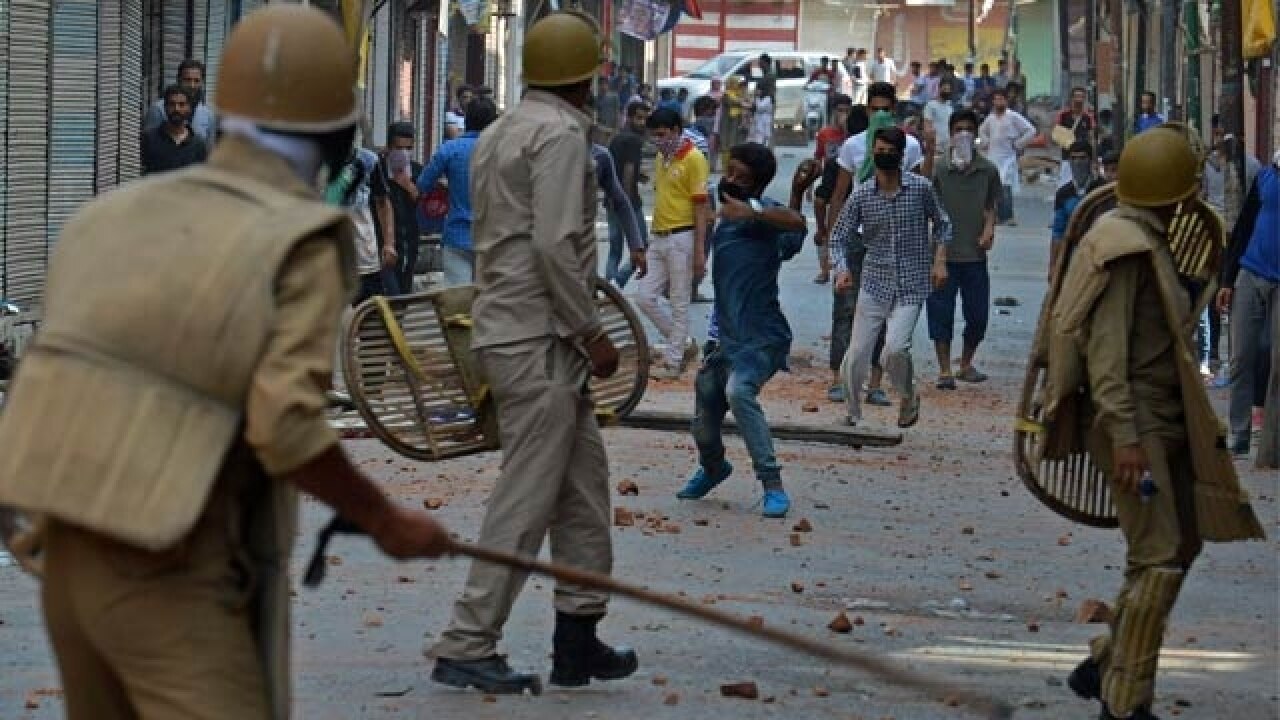
It would indeed be puerile to express sorrow at the death of more than 20 persons in the clashes between the protesters and the security forces in south Kashmir in the wake of the killing of Hizb-ul-Mujahideen commander Burhan Wani. The loss of lives just shows that the police were caught in an unenviable position and the protesters were egged on by vile troublemakers. It will be argued that the protests were spontaneous and it is an expression of the anger of the people of the Valley with the forces. Of course, it is partially true that people in general are not happy with the presence of the forces, especially when the Armed Forces Special Powers Act (AFSPA) is in force. The forces would argue that the violent protests are clear evidence for the need of AFSPA. It is unfortunate but true that Kashmir has been going through these epicycles of violence quite often.
Whatever the cynics might say, it is a good thing that Prime Minister Narendra Modi had appealed for peace and promised all support to the state government. Chief Minister Mehbooba Mufti’s statement complimenting the people of Kashmir for upholding the secular traditions is significant because it indicates that it is only a small section that is clashing with the central and state police. It is curious that UN Secretary-General Ban Ki-Moon did his bit by saying that the two sides will resolve the issue. It is true that in technical terms, Kashmir is a disputed question and the UN feels compelled to poke its nose. It is a desperate attempt on the part of the UN to keep the Kashmir question simmering. Ban Ki-Moon’s concern has only nuisance value.
There is, however, the need to address the problem in the Valley. Of course, the separatists define it as the unresolved dispute about the political aspirations of the people of Kashmir. It is a meaningless phrase because it is supposed to denote the independence of Kashmir, a vague and unrealistic idea. In real terms, it is the failure of the state government in many ways over many decades. And there is also the perverse role played by the ruling Peoples Democratic Party (PDP) when it was in opposition, and the National Conference (NC), which is now in the opposition. NC leader and former chief minister Omar Abdullah made a calculated statement that Burhan Wani symbolises the discontent and anger of the people. It is true in a general sense, but Abdullah’s statement looks more like an endorsement of the violent protests even if he did not intend it to be so. Both the PDP and NC believe in differing degrees that good relations between India and Pakistan are the key to peace in the Valley. PDP thinks that good relations with Pakistan would allow the two parts of Kashmir to come together while maintaining the existing borders. NC does not have much interest in Kashmir beyond the Line of Ceasefire (LoC), but it does think that a friendly Pakistan will help maintain peace in the Valley. The positions of PDP and NC do not offer real solutions.
Pakistan is keen to keep the Kashmir dispute alive for strategic and political reasons. India will have to endure the disturbing effect of Pakistan’s presence in the Valley. India can, however, improve matters greatly if it takes the bold decision of withdrawing the AFSPA. This does not entail that India loosens its security hold in the Valley. It will not be necessary for the forces to be present so visibly in the Valley in order to defend national territory.